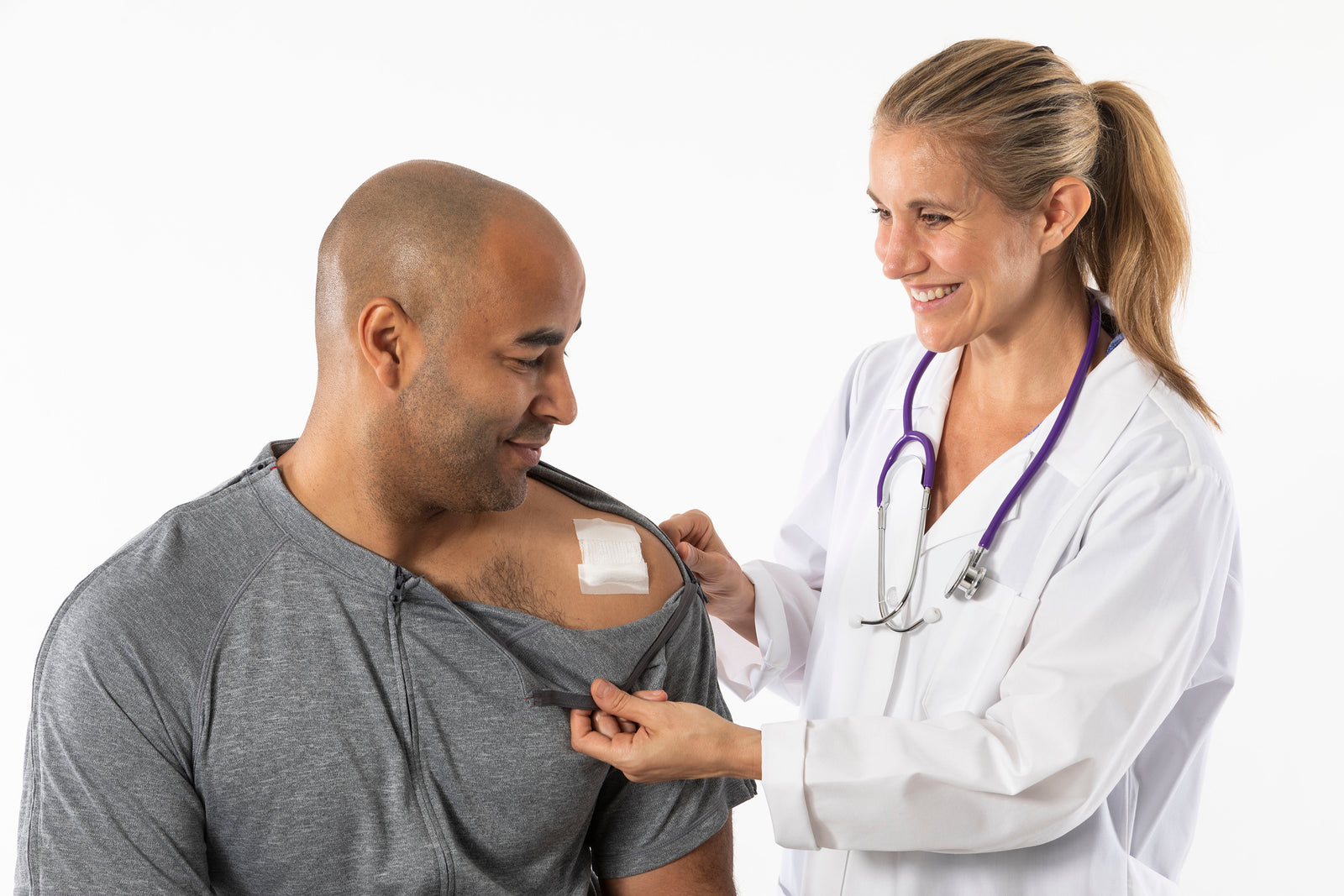Elective Surgeries Are Back: Time to Plan your Rebound!

Elective surgeries are resuming! New protocols are in place to keep you safe. Here is some information that will help you to navigate your upcoming procedure. Expect to be screened for COVID-19 before your procedure and to spend a minimal amount of time in the clinic or hospital post procedure. Visitors will be limited, and this is for your own safety. The American College of Surgeons has prepared a detailed roadmap covering all relevant aspects of resumption as a guide for their members, https://www.facs.org/covid-19/clinical-guidance/roadmap-elective-surgery
With elective surgeries coming back, many of us are wondering, “what happens now?” Elective surgeries are mutually pre-planned procedures between patients and doctors that almost always need to be completed at some point throughout an individual’s lifespan. Whether it be a neurological, orthopedic, cancer-related, endoscopy, colonoscopy, or cardiac procedure, it’s pertinent that patients proceed with specific surgeries in a timely manner so that they do not have to face painful conditions down the road.
Although many medical facilities have been assisting with emergency surgical procedures alongside Covid-19 treatment and care these past few months, the fear of virus transmission within hospital facilities has suspended several elective surgeries. While almost every hospital has been focusing their time and resources towards the novel Coronavirus, surgery services revenues have dipped and government provider payments have lagged. In many cases, medical facilities across the country have suffered from the halting of elective surgeries and have been experiencing various levels of financial strain. This has not only left patients eager to get their delayed elective surgeries completed at this time but health systems ready to resume surgeries as well so that they can regain some of this revenue.
At this time, Doctors are beginning to carefully reschedule and execute these procedures. If you have had a procedure canceled, this is a good time to reach out to your doctor to devise a new plan. There are many factors that go into these decisions, so some patience may be needed. The good news is, your health is of the utmost importance, and your hospital or clinic experience has been redesigned to keep you as safe as possible. The possibility of Covid19 transmission during your elective surgery is truly minimal.
What can you do?
It is important to have a plan post operatively. Whether you have a minimally invasive outpatient operation or a more complex multi-day hospital stay, you will receive a written discharge plan from your doctor. You may want to ask for one when scheduling your procedure so you can see what you need and prepare ahead of time. Ask yourself:
- Will you be discharged to your home or to a rehabilitation facility? Usually, short term rehabilitation stays are not scheduled until after an operation and with the help of your hospital’s social worker. Do some research about your possible choices so you have as much information as possible if there are choices to be made. Medicare inspects and rates facilities and has a useful website to get you started. https://www.medicare.gov/inpatientrehabilitationfacilitycompare/
- If you are going home, who is available to help you, and for how long? Will they be picking you up from the hospital and how will you get home?
- Do you need to buy or rent special equipment? Wheelchair, commode, icing machine, supportive pillows, walkers, plastic bedding. Best to have it waiting than to scramble - again talk to your doctor and if possible to other people who have had the same procedure. There is plenty to be learned from googling.
- Will you be going home with the appropriate medications from your hospital pharmacy or will your doctor call prescriptions into your local pharmacy? Who will pick it up or do they deliver? What will be prescribed- call several days ahead and talk to your pharmacist to make sure it will be in stock.
- Will you require a special diet? Who can help with grocery shopping and food preparation for the first few days? Do you have food in the house? Might food delivery work for you? Will you be sufficiently mobile to prepare your own meals or to answer the door? Make a plan. There are canned and boxed meal replacement drinks that might do in a pinch.
As hospitals lift these elective surgeries off the ground again, it is crucial that they have a concrete plan in place that offers patients guaranteed safety. Hospitals are currently having to rethink operational processes and develop a strategy around the prioritization of elective surgical procedures that are in such high demand. When navigating this prioritization, health systems are encouraged to keep in mind several factors, including a patient’s current condition, need for care, the duration of time the patient has been waiting for care, and the revenue a hospital will receive based on the surgery at hand. Of course, one may assume, all doctors would love to get every patient through their doors with a wave of their magical stethoscope, however, designing a model that considers all of these crucial components takes time. Not to mention that hospitals have to account for the bandwidth of their PPE stock, staffing skill sets, and the number of hospital beds available to care for post-surgical patients as well.
So, let’s just say, after this is all sorted out... ALL health professionals deserve a three-month all-inclusive vacation to any tropical destination of their choosing. Hats off to them! On top of the Coronavirus, designing an optimal way for all patients to receive their elective surgeries while staying safe is a difficult task to have at hand.
Because every hospital bed is valued at this time, medical professionals are going to want their patients in and out of their facilities as efficiently as possible. And to ensure that patients are making it easier on both the facilities and themselves during surgery, it is important that patients prepare to undergo recovery at home. Although this may be daunting for some, our team has put our heads together to deliver a few useful tips on how to best take care of yourself when recovering at home:
Have post-procedure plans?
- Who is available to get you home and to provide support once you are there? someone ready to support your every need. Whether it be your grandson or your partner, having someone that you can depend on to provide you with food, water, and support during the length of your recovery is of great importance.
- Have entertainment options set up and ready for you to easily access. During recovery, rest is key. From getting a new television show ready to watch to purchasing an adult coloring book, having activities that you are excited to engage with will make the time spent resting more enjoyable.
- What will you wear that is comfortable and hassle-free as you recuperate? Have accessible clothing at hand. This is where Reboundwear is here to help! All of our clothing pieces are stylish, easy to take on and off, and are uniquely designed so that you can reach any part of your body that may need to be iced or dressed cleansed simply by unzipping the garment. clothing piece.
- The Covid19 pandemic is still not over. Your recovery will look different than it might have pre-pandemic. Consider the at-home and in-facility precautions that you will need to ask friends, family, and hired helpers to take. Do not trust them to have their own PPE’s. You may want to have a good supply of masks on hand and INSIST that one is worn covering the nose and mouth at all times anyone is in the room with you. Insist on thorough hand washing with soap the moment any helper is in your space and again before you allow them to touch you.
- Finally, limit the number of visitors and caregivers with whom you will be in contact. You don't want to increase your risk of infection by being exposed to too many people who may unknowingly be carrying a virus or other contagious illnesses.
Reboundwear is here to help you feel presentable, fashionable, and comfortable as you spend time recovering at home. Our clothing comes in a variety of colors and styles for all individuals. You can find our apparel on both our website and Amazon where you can have it shipped right to your door before any elective surgery or hospital visit. We even have masks that both you and your caretaker can wear to keep you safe throughout your recovery.procedure! At a time when so much seems daunting and uncertain, let us take care of your clothing while recovering. We are wishing all of our customer's safety and good health at this time. We appreciate each and every one of you!






Leave a comment